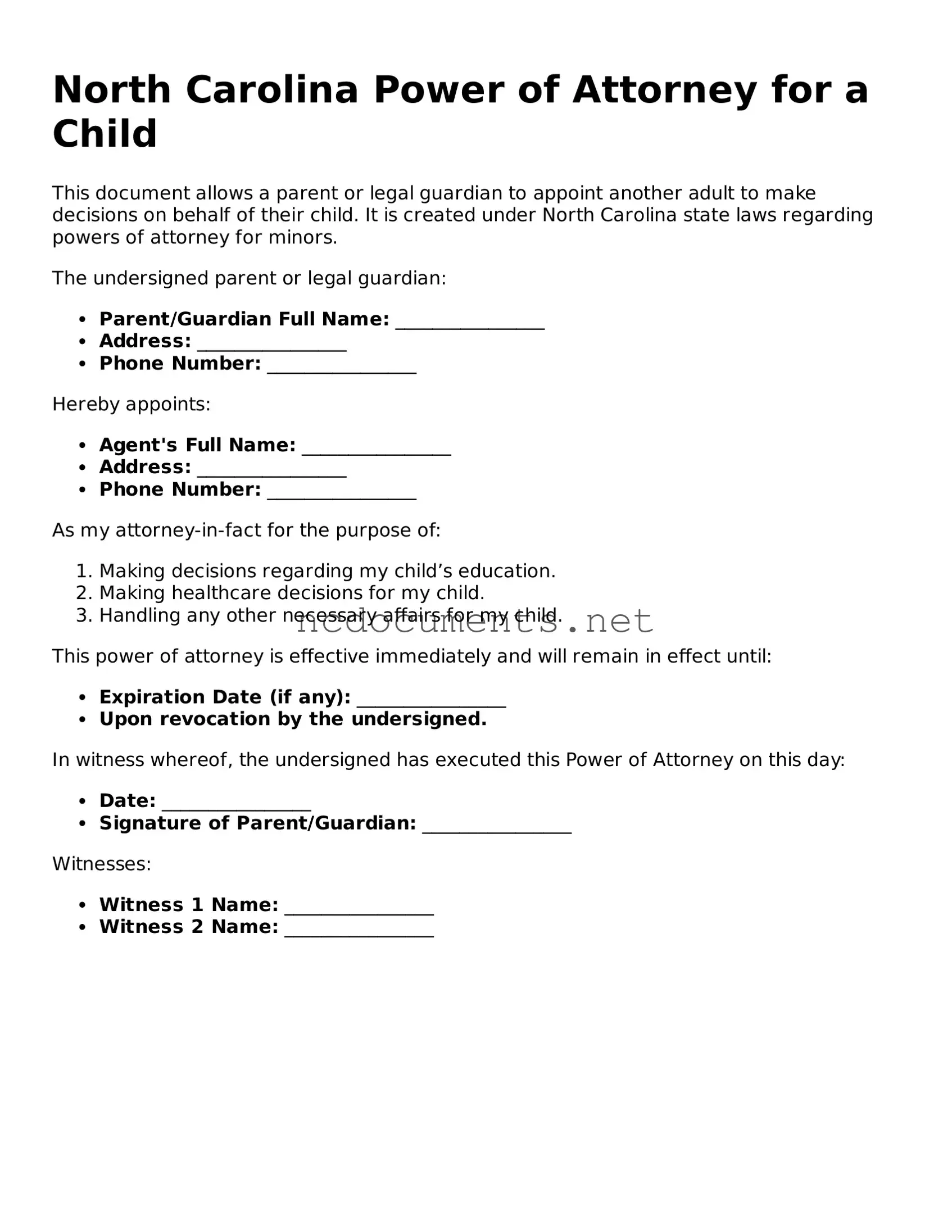What is a Power of Attorney for a Child in North Carolina?
A Power of Attorney for a Child in North Carolina is a legal document that allows a parent or legal guardian to designate another adult to make decisions on behalf of their child. This can include decisions related to education, healthcare, and general welfare. It is particularly useful in situations where the parent is temporarily unable to care for the child, such as during travel or medical emergencies.
Who can serve as an agent under this Power of Attorney?
The agent, or the person designated to act on behalf of the child, must be an adult who is capable of making responsible decisions. This can be a family member, friend, or any trusted adult. However, the agent should be someone who understands the responsibilities involved in caring for a child.
How long does the Power of Attorney for a Child remain valid?
The Power of Attorney for a Child remains valid until the specified expiration date listed in the document, or until the parent or guardian revokes it. If no expiration date is provided, it is generally considered valid for one year from the date of execution. Always check local laws for specific requirements.
What decisions can the agent make on behalf of the child?
The agent can make a variety of decisions, including:
-
Medical decisions, such as authorizing treatment or procedures
-
Educational decisions, including enrollment in school or special programs
-
General welfare decisions, such as activities and daily care
However, certain decisions, such as those involving the child's permanent custody, typically require additional legal processes.
Do I need to have the Power of Attorney notarized?
Yes, in North Carolina, the Power of Attorney for a Child must be signed in the presence of a notary public to be legally binding. This adds an extra layer of verification to ensure that the document is authentic and that the signatures are valid.
Can I revoke the Power of Attorney once it is established?
Yes, a parent or legal guardian can revoke the Power of Attorney at any time, as long as they provide written notice to the agent and any relevant parties. It is advisable to formally document the revocation and notify the agent to prevent any confusion.
While there is no specific state-mandated form, it is recommended to use a standardized template that includes all necessary elements, such as the names of the parties involved, the powers granted, and the duration of the authority. This ensures clarity and compliance with legal standards.
What happens if the Power of Attorney is not in place when needed?
If a Power of Attorney is not in place, the parent or guardian may face challenges in making decisions for the child during emergencies or when they are unavailable. In such cases, it may be necessary to seek legal guardianship or other court orders, which can be time-consuming and complicated.
Can a Power of Attorney for a Child be used for multiple children?
Yes, a Power of Attorney can be drafted to cover multiple children. Each child should be clearly identified in the document, and the powers granted should specify that they apply to all listed children. This allows for streamlined decision-making for siblings under the same guardianship.
Where can I find assistance in completing the Power of Attorney for a Child?
Assistance can be found through various sources, including:
-
Legal aid organizations
-
Family law attorneys
-
Online legal service providers
It is advisable to consult with a professional to ensure that the document meets all legal requirements and adequately reflects the wishes of the parent or guardian.

